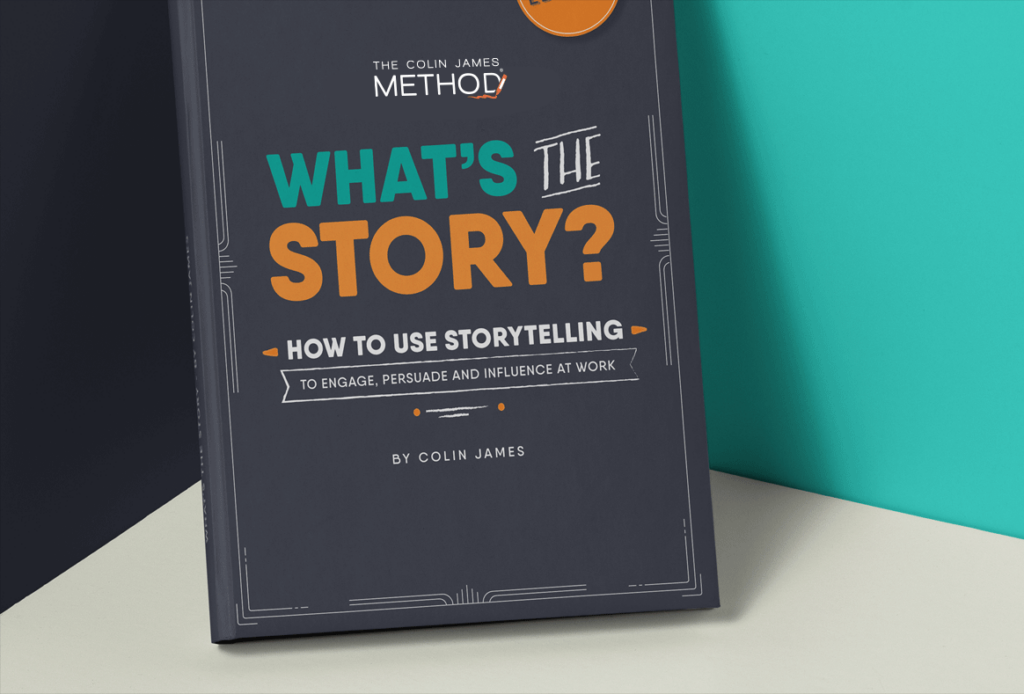Blog bites:
- Know the point of the story
- Be a brief storyteller
- Build a bridge to meaning
Human beings have been telling stories since the dawn of time. It’s the glue that holds tribes, communities, cultures and people together. So how can we develop the skills of business storytelling to ensure we are effective communicators?
We all know that stories directly engage and influence us. Stories can change the way we think, feel and behave. It seems sensible and natural to share stories in our business communication. It ensures our concepts and ideas are heard, understood and remembered.
Have you noticed that most websites selling an idea or product feature testimonials? These short messages are stories of somebody sharing their experience of that service or product. And they usually include the person’s name, title and organisation.
Website testimonials work so well because they make use of the three keys of business storytelling, which we have found to work in effective and elegant storytelling.
Let’s look at each of the three keys:
1. Have a purpose
Before you share a story with your audience, be very clear about its purpose and relationship to your narrative. Ask yourself ‘What’s the point of this story?’
Let’s use three examples to illustrate this. Is the purpose to convince your audience? That is, to provide proof that your idea, product or service has reach.
Is the purpose to overcome objections? If so, you can tell a story of someone in a similar position to the recipient. They will then see themselves in that situation, using the same solution to experience a similar outcome. It’s a way of weaving instructions into the story – what we call ‘embedded command’.
Is the purpose to demonstrate your credibility? Obviously you don’t do this in a showy, grandiose way. However, you can use a story to illustrate that you know what you’re talking about.
2. Be brief
Being a powerful, successful storyteller is about being brief. Our mantra here is to come to your point simply and swiftly and use ‘juuuuust enough detail’, so the listener can create pictures in their own minds using their imagination.
Stick to these four essential elements:
- When did it happen? Time line – “About three months ago…”
- Where did it happen? Geographical location – “… at the Sydney airport lounge…”
- Who was involved? Characters – “I met two Texan Oil execs – Louise and Chuck…”
- What happened? Event – “and they looked me up and down and Louise said…”
When mentioning who was involved, you should always use names appropriately. For example, “We had a client…I won’t mention names but let’s say she’s Susan. Now Susan was a retail manager…”. The reason we give a name – even an alternate one – is because a name paints a picture in your audience’s mind. They know the person in the story is a woman or man of a certain title and generation.
3. Make the link
This is where stories succeed or fail. The link connects the meaning of the story to the outcome you’re after. Some stories are obvious in their link, but you should always make the link overt.
Making the connection allows your audience to consciously connect with the meaning and your intent.
Also, find the analogous opportunities within the story. Once, Colin watched some tourists struggling with a ticket machine at Sydney’s Circular Quay. They looked frustrated and embarrassed. They couldn’t follow the instructions and were struggling to read the tiny display. A queue was forming. No-one helped. This story has a number of potential links about technology, dealing with the unfamiliar, being ‘out of place’, bad service, lack of community and on and on.
The link is the key.
These three business storytelling skills are core to being a superstar communicator. Because sharing stories can dramatically change the way you influence. Colin James and Erica Bagshaw further explore this topic in the Mastering Communication Program.

The Colin James Method® Facilitators train corporate executives to improve their professional communication skills with a proven methodology. Our highly trained Facilitators and Coaches are recognised for their experience in their fields and have worked with many individuals and organisations around the world to master the art of communication.











